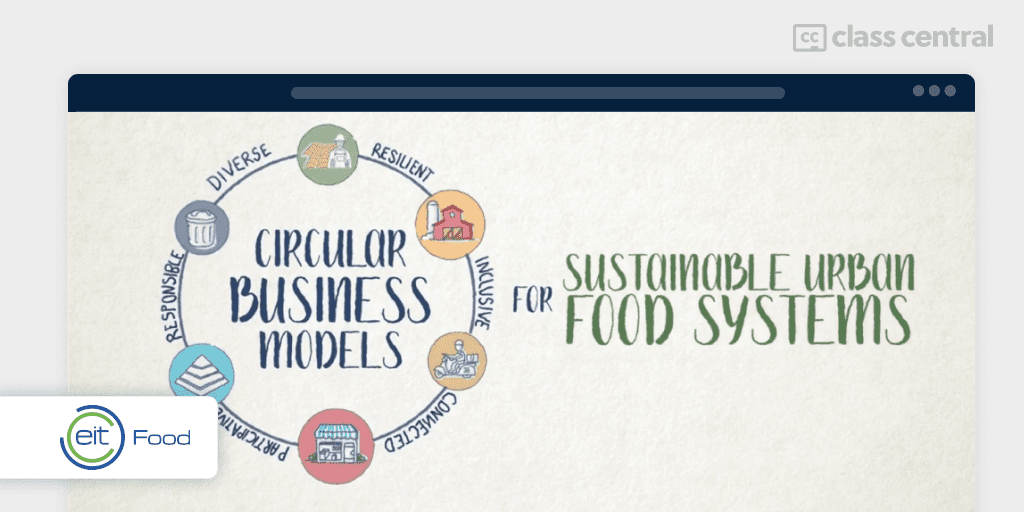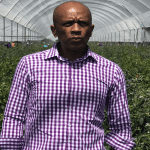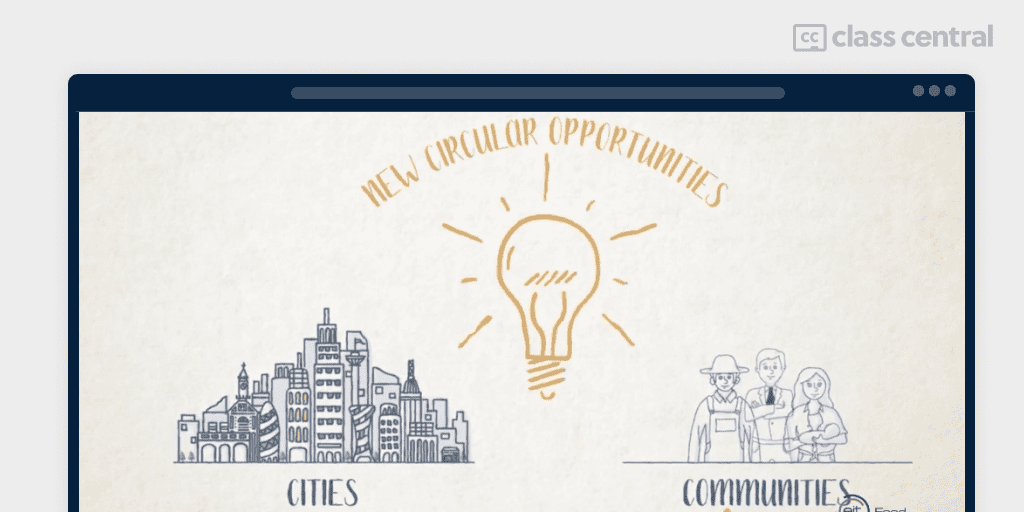Course review: Circular Business Models for Sustainable Food Systems
Learn how to integrate theoretical knowledge about the circular economy concept with the food production systems.
This is a review of the online course Circular Business Models for Sustainable Urban Food Systems, offered by EIT Food and University of Turin via FutureLearn.
I am Nhlanhla Magubane. I have over 15 years’ experience in private markets and advisory services with a full grasp of the global context of business and a deeper understanding of the environmental, economic, and societal public policy issues, macro-economy, capital markets, geo-politics, risk, strategy, and good governance practices.
I choose a career in investment management specifically because of the many opportunities it presents in accelerating systemic change across environmental, social, and economic systems in African communities. I am currently managing an agricultural impact fund that invests in a variety of superfood crops across multiple locations in Sub Saharan Africa.
I am pursuing PhD studies, currently investigating circular systems thinking approaches to stimulating economic and sustainable development by means of impact investing as a catalyst for change in South Africa. I have an undergraduate bachelor’s qualification in commerce, postgraduate qualification in business management and a masters in science specializing in technology and innovation.
I have also done a number of specialist programmes on investments, impact investments, farming to fork, sustainability, public policy economics, green energy management and many more.
Why I took this course
I was very keen to explore and develop my knowledge on the circular business models and practices in food production within the context of Sustainable Development Goals (SDG’s).
The traditional approaches to agriculture are slow in adapting to the ever-changing needs of the environment, economy, and society. As part of an emergent transition towards a circular economy, I sought to rethink our strategic direction as an agricultural impact fund manager in light of a transition to a more sustainable and circular environment.
Prior to enrolling for the course, I was looking for a specialist program that was going to equip me with the necessary understanding of circular economy principles, concepts, and measurements in the lens of Sustainable Development Goals.
My goals
This course provided me with the insights to integrate theoretical knowledge about the circular economy concept with the food production systems. As such, guiding principles for developing the circular economic model captured principles, concepts, and measurements as applied in food systems.
Furthermore, it presented me with an opportunity to impart some of the acquired knowledge to my management and operations team who are constantly applying innovative methods to enable sustainable farming practices. I now have developed the requisite skills and practical tools to create awareness on urban food circularity to foster sustainable food systems.
The course and instructors
Considering the fundamental role that food production plays in the environment, economic, and social systems, this course assists learners to design and construct circular and sustainable food systems from farm to fork. The key focus is to empower the learner with the right strategies and techniques that channel the development of circular economic business models and practices in food production and the creation of sustainable communities. It then advances to the discovery of key challenges and opportunities concerned when designing circular food systems. Lastly, the course explores the mechanisms appropriate for the creation of sustainable urban food systems in the context of SDG’s.
The course was offered by EIT Food in collaboration with University of Turin and University of Helsinki with the support of co-funding from the European Union.
The classes were professional and ran remarkably well. The presenters were able to articulate complex concepts by using a practical delivery style and learning paths that were easy to understand.
I was thrilled to have Vivien Bodereau as a host, who did an excellent job in interacting with us during the course and communicating afterwards.
Most of the learning was focused around debate, discussion, sharing our own experience and knowledge, and listening to new perspectives. The educators applied teaching techniques that expressed complex concepts clearly. This built a very good and lasting foundation for knowledge on this subject matter.
A special mention goes to all the educators and their assistants, particularly Professor Paola De Bernardo who is at the University of Turin, Department of Management, specializing in the area of Strategic and Management Control Systems, performance measurement, integrated thinking, and circular economy corporate disclosure.
As well as Bodo Steiner, a Professor of Food Economics and Business Management at the Department of Economics and Management, University of Helsinki. His knowledge on organizational sustainability, in particular, social sustainability in food systems, value chains, and organizational innovations is captivating.
Grading and overall commitment
The questions were well structured and if you didn’t prepare well for the quizzes, you were easily exposed. The material was not onerous and therefore grasping the concepts was not so difficult. I enjoyed the challenges and the quizzes overall.
I dedicated sufficient time to read the material as it was of interest to my academic pursuits and my career.
Conclusion
The course presented a unique opportunity to equip the learners with the core knowledge and understanding of the Circular Business Models for Sustainable Food Systems. It skilfully shared practical case studies and emerging models focusing on the appropriate strategies dedicated to facilitating impact across the environmental, economic, and social food production systems.
The prerequisites to be successful in this course are: passion, commitment and determination.









